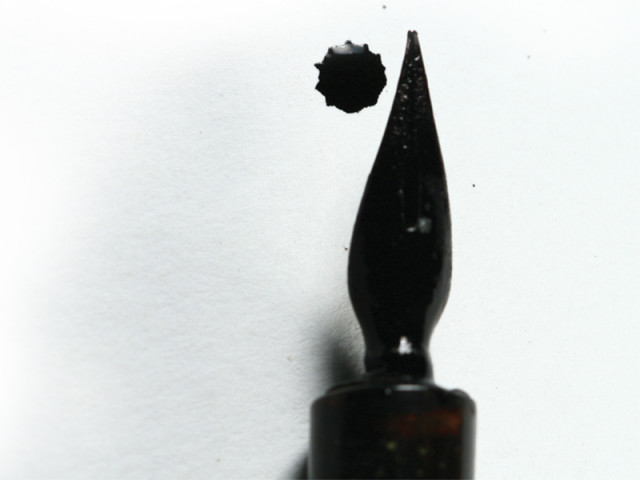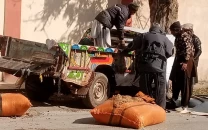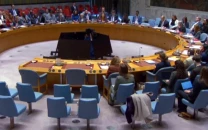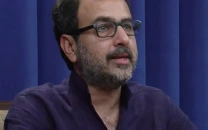Elsewhere at the ILF
Journalist Urooj Jafri moderated a session on “The Life and Times of ABS Jafri”.

DESIGN: CREATIVE COMMONS
In a post lunch session, ILF organisers Ameena and Asif Farrukhi sat with Sadaf Saaz from Bangladesh, and Razi Ahmed to talk about the significance of such festivals. Saaz said “It’s an important space in the times of shrinking spaces whereas Saiyid said festivals are an important vehicle in the struggle to capture minds of younger generations. “Pakistan is not one-dimensional country. We have authors and readers. That aspect should be known outside Pakistan as well.”
A little later, Journalist Urooj Jafri moderated a session on “The Life and Times of ABS Jafri” — a collection of essays by over a dozen colleagues, friends and relatives of the late journalist. Urooj, who compiled the book, said it is as much about ABS as about the journalism of his times.
Journalist Mujahid Barelvi gave an overview of Jafri’s professional life.
Pakistan Peoples’ Party politician Farhatullah Babar remembering Jafri said after one meeting “you would want to meet him again.” He said he was a “committed democrat, prolific writer and great listener.” Self effacing Jafri, never brandished his journalistic skills neither did he flaunt his hazards of profession to get entitled to a preferential treatment, Babar said. “If this book were not there, Jafri would have been lost forever to our new generation of journalists.” J
Meanwhile, the launch of M Naeem Qureshi’s “Ottoman Turkey, Ataturk, and Muslim South Asia” was both informative and thought-provoking. The book is about Indian Muslim responses to the fall of the Ottoman Empire, but the discussion also touched on false narratives, such as the fact that the Turks had no interest in the restoration of the caliphate, even though that is what people claimed here.
Pan-Islamism, in the words of the author, is a utopian image, both unreal and unreasonable, but some still think it is achievable.
There was also a statement on how fans of a Turkish soap opera set in the Ottoman era think they know the history of that period, even though the show is outright fiction.
Shahid Siddiqui’s “Language Gender and Power” discusses how gender stereotypes are reinforced, not only by people, but by the state itself. The reinforcement is mostly subtle, with many not realising they are being exploited. Moderator Tariq Rehman asked if women are shy due to social expectations, to which the author replied, jokes, films, and other forms of pop culture lead to the creation of a constructed identity which has been internalised.
He ran through some of the everyday terms people use that are actually gender insensitive such as for single men, the Urdu term goes “is he married”, while for women, it is “has she gotten married”, implying that women ‘need’ to get married.
Siddiqui ended on a hopeful note, saying gender is a social construct and is not fixed, so change can happen.
At another session, panelists have said that the state of television shows in the country has deteriorated in recent years despite advancements in technology. They were speaking at a panel discussion titled “Drama and the small screen”.
Moderated by Raana Sheikh, the speakers included TV veterans Sultana Siddiqui, Sahira Kazmi, Asghar Nadeem Syed and the young producer Sarmad Khoosat.
Sheikh alluded to the rating-based system of the television channels which comprises on quality content.
Syed underscored the lack of quality script and screenplay. “There used to be no bedroom or dining table scenes back in the day. The screenwriter was responsible for setting the scene and the impact it would have on the viewership,” he said. Instead of good story structure, aesthetic and morality, he said, the recent shows were more concerned with serving vested interests of product promotion.
He talked about the around 60 per cent unattended viewership, the audience in small towns and villages that nobody was willing to bring to the small screen. “We have too many cooking shows, advertising ingredients that the common man cannot afford.
Kazmi emphasised on giving the audience a holistic picture while keeping it true to life. “I’ve always tried to show multiple perspectives in my own productions to present well-rounded stories,” she said, adding that while the television channels had increased, the themes continued to get monotonous.
“Why can’t we romantic comedies anymore?” she questioned.
Khoosat said, “Where we are standing now the television drama is a business now and lacks the luxury of PTV.” He said the people from his generation were unaware of the processes that were practiced back in the day, they have no interaction with the writers and quality content often goes by unnoticed even if it does manage to get air time.
Published in The Express Tribune, April 27th, 2014.


















COMMENTS
Comments are moderated and generally will be posted if they are on-topic and not abusive.
For more information, please see our Comments FAQ